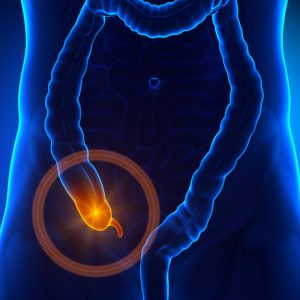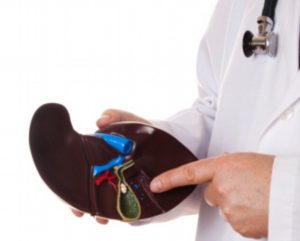CALL TODAY 646-846-1136 | EMAIL
Surgical Experts Dedicated to Improving Lives
At Lenox Hill Surgeons, our dedicated team of nyc surgeons and medical professionals provide compassionate care with the highest ethical & professional standards. In our state of the art facility, we offer surgical services using only the most cutting edge and current procedures and treatments.We specialize in general surgery, including extensive experience in performing hernia repair surgery. Our expertise is in minimally invasive surgery and robotic surgery. Minimally invasive and robotic surgery often allow patients to experience easier recovery than traditional open surgery. They also allow for more precise and less traumatic surgery. When robotic and minimally invasive surgery is not an option, we are also skilled and experienced in traditional open surgical procedures.
All of our doctors are experienced and skilled surgeons having undergone extensive training in school, residency and fellowships. They all practice medicine with ethical behavior, compassion and superb bedside manner. In the operating room they all exhibit precise mechanical abilities, analytical thinking and the ability to visualize tissue in three dimensions. These innate and learned skills allow our surgeons to be some of the most dexterous and skilled professionals in all of New York City and the Country.
Call us: 646-846-1136
About The Surgeons
PATIENT TESTIMONIALS
Recent Awards
We are honored and deeply appreciative to have consistently received prestigious awards and recognition year after year, establishing us as one of New York’s foremost hospitals for a wide range of general surgeries, safety measures, specialized procedures, and overall excellence in healthcare. At Lenox Hill Surgeons, our unwavering commitment lies in delivering exceptional care and unwavering support to our patients, guaranteeing their safety and successful recovery throughout their entire surgical experience.
Hospital Quality Awards
 America’s 50 Best Hospitals Award™ (2023, 2022)
America’s 50 Best Hospitals Award™ (2023, 2022)
Top 1% in the nation for providing the highest clinical quality year over year.

America’s 100 Best Hospitals Award™ (2021)
Top 2% in the nation for consistently delivering clinical quality year over year.

America’s 250 Best Hospitals Award™ (2023, 2022, 2021)
Top 5% in the nation for consistently delivering clinical quality.

Patient Safety Excellence Award™ (2023, 2022)
Top in the nation for providing excellence in patient safety by preventing infections, medical errors, and other preventable complications.
Specialty Clinical Quality Awards

America’s 100 Best Hospitals for Cardiac Care Award™ (2023, 2022, 2021, 2020, 2019)
Superior clinical outcomes in heart bypass surgery, coronary interventional procedures, heart attack treatment, heart failure treatment, and heart valve surgery.

America’s 100 Best Hospitals for Coronary Intervention Award™ (2023, 2022, 2021, 2020, 2019)
Superior clinical outcomes in coronary intervention procedures (angioplasty with stent).

America’s 100 Best Hospitals for Prostate Surgery Award™ (2023, 2022, 2021)
Superior clinical outcomes in prostate removal surgery and transurethral resection of the prostate.
Click to see all of our Healthgrades best doctors awards


Visit our main website at www.LenoxHillSurgeons.com
Blog Posts are Below:
Monthly Archives: December 2017
A Quick Guide to Appendix Surgery
 Appendix surgery NYC is one of the most common forms of surgery; it is also one of the safest. The appendix sits where the large and small intestines meet. It is a thin tube which is roughly four inches in length and in most people, it sits in the lower right abdomen.
Appendix surgery NYC is one of the most common forms of surgery; it is also one of the safest. The appendix sits where the large and small intestines meet. It is a thin tube which is roughly four inches in length and in most people, it sits in the lower right abdomen.
We still don’t know for sure what the function of the appendix is, but we have several theories. One theory is that the role of the appendix is to hold bacteria, to essentially ‘reboot’ the digestive system following a bout of diarrhea. Others believe that the appendix is an evolutionary hangover from our past when our diet was vastly different to today. It may have held digestive enzymes, which we no longer need as we have mastered the art of cooking food.
Conditions of The Appendix
The most common problem with the appendix is appendicitis. For reasons that we do not fully understand, the appendix can become inflamed and ultimately rupture. The most obvious symptom of this is an intense pain in the lower abdomen, often accompanied by nausea and vomiting.
Tumours of the appendix are rare but, fortunately, because a patient can easily survive without an appendix and without any impact on their quality of life, the prognosis is generally good so long as the cancer hasn’t metastasized. Carcinoid tumors periodically chemicals, which cause flushing, wheezing, and diarrhea. The other type of tumors found in the appendix is epithelial tumors, which are growths on the appendix that do not secrete chemicals.
Appendectomy
 Surgery to remove the appendix is known as an appendectomy and remains the only treatment for appendicitis that we know of. Traditionally, this surgery was performed by making a large incision in the patient’s abdomen to gain access to the appendix, but by using modern laparoscopic techniques, the surgeon only needs to make a small incision through which instruments can be used to cut the appendix into smaller pieces for removal. Surgery is also required to remove any tumors.
Surgery to remove the appendix is known as an appendectomy and remains the only treatment for appendicitis that we know of. Traditionally, this surgery was performed by making a large incision in the patient’s abdomen to gain access to the appendix, but by using modern laparoscopic techniques, the surgeon only needs to make a small incision through which instruments can be used to cut the appendix into smaller pieces for removal. Surgery is also required to remove any tumors.
Other Treatments
 While awaiting confirmation of a diagnosis, many doctors prescribe antibiotics to patients with a potential appendicitis, just in case the symptoms are being caused by an infection. It is also possible, albeit rather rare, for antibiotics to alleviate appendicitis. There is some evidence that in such cases patients are at a significant risk of relapse.
While awaiting confirmation of a diagnosis, many doctors prescribe antibiotics to patients with a potential appendicitis, just in case the symptoms are being caused by an infection. It is also possible, albeit rather rare, for antibiotics to alleviate appendicitis. There is some evidence that in such cases patients are at a significant risk of relapse.
Our clinic, with its team of dedicated and talented surgeons, offers the best appendix surgery NYC, so contact us for a consultation.
Contact us at 646-846-1136 to schedule an appointment.
Adapting to Life Without a Gall Bladder
\ Although living without a gallbladder isn’t a huge deal, it does require some simple lifestyle changes. Fortunately, these changes are minor enough that most patients have no trouble adapting to them. Most patients find that having their gallbladder removed has no impact on their general comfort or quality of life and it seems that several different factors come into play in the aftermath of surgery, which will affect recovery. For some, there are uncomfortable symptoms that can have an impact on their day to day functioning.
Although living without a gallbladder isn’t a huge deal, it does require some simple lifestyle changes. Fortunately, these changes are minor enough that most patients have no trouble adapting to them. Most patients find that having their gallbladder removed has no impact on their general comfort or quality of life and it seems that several different factors come into play in the aftermath of surgery, which will affect recovery. For some, there are uncomfortable symptoms that can have an impact on their day to day functioning.
What Does a Gall Bladder Do?

The gall bladder acts as a reservoir to store and, when necessary, release bile. Bile is a liquid which aids in the digestive process. Specifically, it aids the breakdown and digestion of fatty foods. The gallbladder releases bile into the small intestine when it is needed. When food hasn’t been eaten for a long period of time, such as when we go to sleep, the gallbladder stores the bile. After having the gallbladder removed it is no longer there to store the bile and, consequently, even though you will still have the same overall amount of bile in your body, there will be less in your intestine.
Changes in Digestion
Following gall bladder surgery NYC, there can be some subsequent changes in the digestion of food. Most doctors will, therefore, recommend that their patients switch to a low-fat diet, usually only temporarily, but if problems persist then this might need to be a long-term change. Fortunately, these issues are relatively uncommon. Some people may notice that they start having more frequent bowel movements and this can be exacerbated by fatty foods.
Managing Any Changes

If you do experience any changes in your digestion then you shouldn’t worry. These issues are very unlikely to be serious and the best defense against them is to switch to a low-fat diet. There also are medications that can be prescribed to alleviate the symptoms by binding the bile.
In addition to avoiding high-fat foods and switching to low-fat diet, some people also find it helpful to eat smaller and more frequent meals rather than a few big meals in the day; it is also a good idea to avoid eating large meals after having not eaten for a length of time.
If you need advice about gall bladder surgery then drop into our gall bladder surgery NYC clinic. One of our expert doctors will then be able to advise you on what to do next.


















